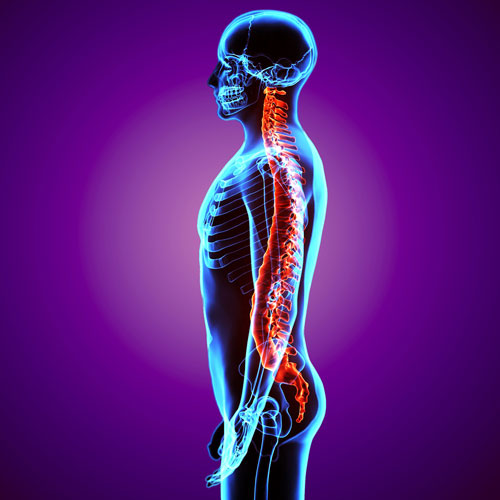Importance of Core Strength

We hear a lot of talk about core strength but what does that mean exactly? We may envision someone who is fit, toned and has a “6 pack” for abs, but does this mean their core is strong? In this week’s blog, we will be talking about what your core is, why it is important, and signs your core is weak. Next week we’ll discuss ways to keep your core strong and exercises to do for lower back pain.
First what makes up your core? Your core is a group of deep muscles that supports and controls your spine and pelvis. It consists of as many as 29 different muscle groups connecting into the pelvis from the spine and hip area which ultimately control the movements of the legs and arms. Your core can be divided into four major regions: back extensors, abdominals, lateral trunk muscles and the hip muscles.
There are many important benefits of building up the core, some of these include:
- Helps create a healthy spine and posture: We will learn later that when an individual has a weak core, it is difficult for that person’s spine to have the full support in remaining upright. This results in poor posture, abnormal nerve pressure and possible lower back pain. However in contrast, if someone has a strong core their spine can receive the support to remain where it should be.
- Improves athletic performance: Having good core strength does not just provide support to the spine, but also to the pelvis and hips. Overall, the body begins to work in harmony together. When this occurs, you can expect an athlete to be at peak performance for sports, running, weight lifting, and more.
- Helps prevent injuries: When your core is strong, your body is working together as it should be. When your body is performing like this, it can be far more difficult for the body to experience injuries as everything is working together.
- Creates better balance and stability: A strong core stabilizes the body allowing you to move in any direction with proper balance. It also helps prevent falls and supports your body.
Your core strength is more about the ability to hold your body in ideal postures, then it is about power. This helps to lessen the load on your joints and also helps promote better motion.
Below are some signs from having a weak core:
- Poor balance: Your core muscles help stabilize your spine and pelvis, therefore with a compromised core you may begin to develop poor stability and balance. You may have experienced a fall or have fears of falling.
- Poor posture: The difference between whether you stand or sit up straight is completely dependent on your core muscles. Having a weak core results in the inability to support your spine when it remains upright. When our spine isn’t supported, it causes stress to our spinal cord. When our spinal cord is under stress, it can not move energy through the spine to all the vital organs of our body.
- Lower back pain: In addition to what we previously stated, when someone has difficulty with core strength, their spine can not be fully supported. Other areas of the body, commonly the lower back, begin get compromise. When this happens, you may begin to experience low back pain.
- Difficulty breathing: This outcome goes hand and hand with having poor posture. If someone has a weak core resulting in poor posture, then this may cause that individual to “hunched” over. This may then cause that person’s lungs to be more compressed, ultimately negatively impacting one’s breathing.
The positives and negatives that are listed above are good reasons to begin developing a core fitness routine. If you have one already, great!! Strive to work your core 4-5 days a week. If you don’t have one, don’t fret—join us next week for specific exercises you can do. At AWSC we like asking patients, “how do you want to age?” It is never too late to start heading in the direction of good health. Everyday is another chance to try again. Your outcomes may be different if you keep waiting so the earlier you start, the better. If you have any medical conditions or concerns, consult with your healthcare provider first.
Exercising consistently, even if it is just a minimal workout, has so many physical and mental health benefits. The most obvious benefit is it helps combat obesity and keeps us in shape. While this is a healthy approach, it is important to work the deep muscles of the core 4-5 times a week. You may be fit and toned, but that doesn’t mean your core is strong. In addition to fighting obesity, consistent exercises will also help avoid your body from something called deconditioning. Deconditioning is the decline of a person’s ability to exercise or be active in general. When one doesn’t exercise their body, as they age they may begin to experience deconditioning and eventually have difficulty not just exercising, but also completing simple daily tasks.
With all this information, ask yourself, “how do I want to age?” Do you want to experience a weak core, poor stability, poor posture, inactivity and even deconditioning? Or would you prefer to develop a strong core, healthy posture, and be opposed to developing injuries? Ask yourself these questions and then take action. Hopefully we will all begin working on strengthening our core, amongst other muscles in our body, and reap the benefits that it brings.
